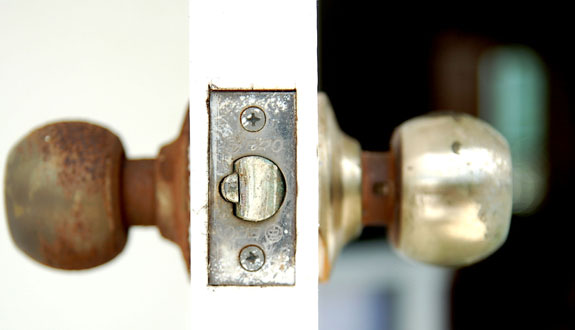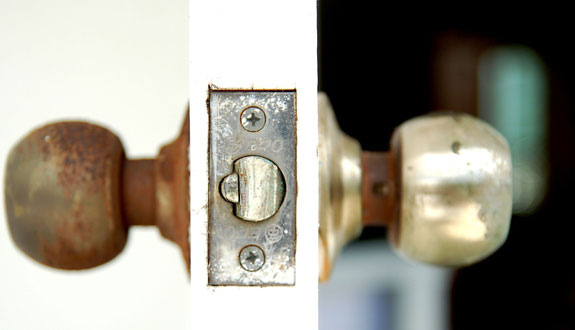Does the LSAT let the right kind of people into law school?
- by
- Nov 06, 2017
- LSAT
- Reviewed by: Matt Riley


A few days ago, the Internet algorithms that know all too much about me directed me to this Vice article about taking the LSAT with no prep. I read it quickly and chuckled at the test takers who had trouble following the somewhat onerous but not terribly complicated test day instructions. I was also amused but not surprised to learn that LSAC employs “secret shopper” test takers to make sure that the proctors enforce regulations. But ultimately I found it a relatively flimsy premise for an article and moved on with my oh-so-exciting weekend.
One of the author’s claims in particular, however, was brought back to my attention as we discussed the blog topics for the week. The author, Hanson O’Haver, mused upon observing his fellow test takers:
I shouldn’t judge, but everyone looked pretty square, and I thought about how the very process that allows someone to enter the professions to enact social change couldn’t be better designed to repel the rebellious types who would want to enact such change.
Is there a point here? I read this as a knock on the LSAT. By that reading there’s a bit of an inconsistency in the article since a paragraph earlier O’Haver notes concern that future lawyers can’t even follow the LSAT rules. But some law schools have cited broadening their applicant pools as a reason to begin accepting the GRE, so the idea has wider resonance. Let’s talk about it.
It’s true that the GRE is easier to take. You just make an appointment for pretty much any day and go in to the test center. You’re not limited to 4 administrations a year (though the LSAT will be given 6 times a year starting next June — big whoop). Some potential law school applicants might have taken the GRE anyway because they’ve considered applying to other grad schools, but if you’re floating law school among a bunch of options then you should make sure you really actually do want to go to law school. The GRE has ample prep materials available, but so does the LSAT, and no other standardized test matches the LSAT’s openness in releasing old tests for prep purposes. So the GRE’s convenience advantage is real but limited.
Despite the admission requirements, there are still more law school graduates than there are jobs. So while there might be a case that we’re making it too hard for some people who should go to law school to do so, there isn’t much of a case that it’s too hard to go in general. Furthermore, law school is really expensive.
Enacting social change usually isn’t the most lucrative thing in the world, so if that’s your goal you pretty much have to get a scholarship, have faith that loan repayment assistance programs will cover you, resign yourself to paying back big debt on a salary that won’t really cover it, or have money already. Standardized tests may be an obstacle, but money seems to me the bigger obstacle.
I’d also question judging fellow-test takers by their appearance on test day, of all days. It’s not exactly when most people set out to show their style and personality. Sure, they may have looked square, but what does that even mean? Judging by my experience with future lawyers, I’d wager that O’Haver wrongly judged at least a few books by their covers.
Still, there may be something there. Law schools use the LSAT because it helps predict first-year law school grades. It isn’t perfect but it has a decent correlation. I used to think that the LSAT tested relevant skills. Your LSAT score isn’t a marker of your intelligence, but it’s a well-written test and it seemed perfectly reasonable to me that the skill it tests would relate to how you’d do in law school. The recent trend of law schools accepting the GRE has shaken my belief in the LSAT to its very core.
Let me explain. I’ve taught the LSAT exclusively for the last five and a half years but before that I used to teach a bunch of other tests, too: the GMAT, the verbal section of the MCAT, and the GRE. The GRE always stuck out to me as a really stupid test. Not easy, mind you. Just stupid. The verbal section tests which words you happen to know and how well you can parse bad writing. The hard questions on the math section test how well you can figure out the trick to that particular hard question. I’d often come out of figuring out a hard math question on the GMAT with some new insight into, say, number theory. I never had that kind of reaction to the GRE. Figuring out a hard question on the GRE never got more than a groan out of me.
The LSAT seemed, by comparison, a much better test. But the ABA allows law schools to substitute other tests for the LSAT only if those other tests predict law school grades as well as the LSAT does. Harvard and the other schools that now accept the GRE claim to have done studies showing that the GRE does just that.
If the utterly stupid, moronic, pointless GRE does just as good a job of predicting law school grades as the LSAT, what, then, of the LSAT? I still think it’s a smarter, more interesting, better test than the GRE. Studying for the LSAT will, in my opinion, do more for your thinking skills than will studying for the GRE. But despite all that, the LSAT isn’t any better at its job, at least according to Harvard and the rest. And I really don’t know what to conclude about that.
Search the Blog

Free LSAT Practice Account
Sign up for a free Blueprint LSAT account and get access to a free trial of the Self-Paced Course and a free practice LSAT with a detailed score report, mind-blowing analytics, and explanatory videos.
Learn More
Popular Posts
-
logic games Game Over: LSAC Says Farewell to Logic Games
-
General LSAT Advice How to Get a 180 on the LSAT
-
Entertainment Revisiting Elle's LSAT Journey from Legally Blonde








